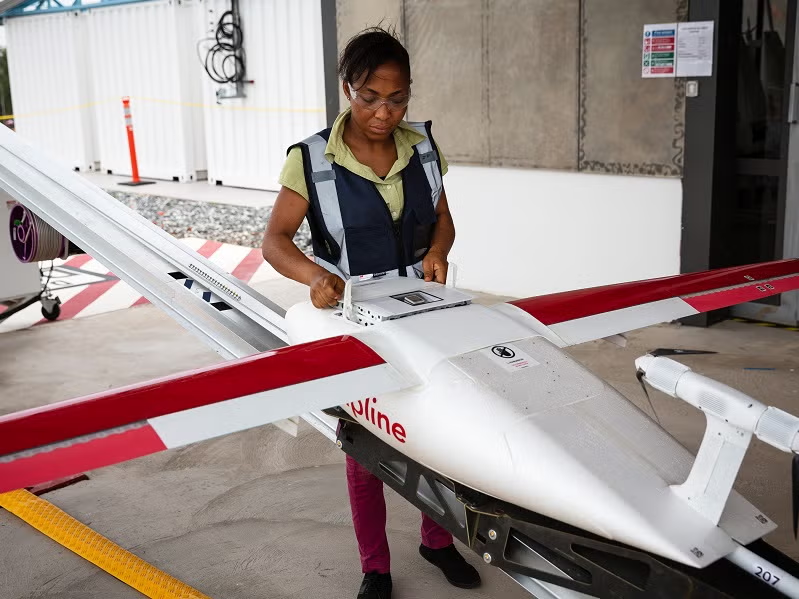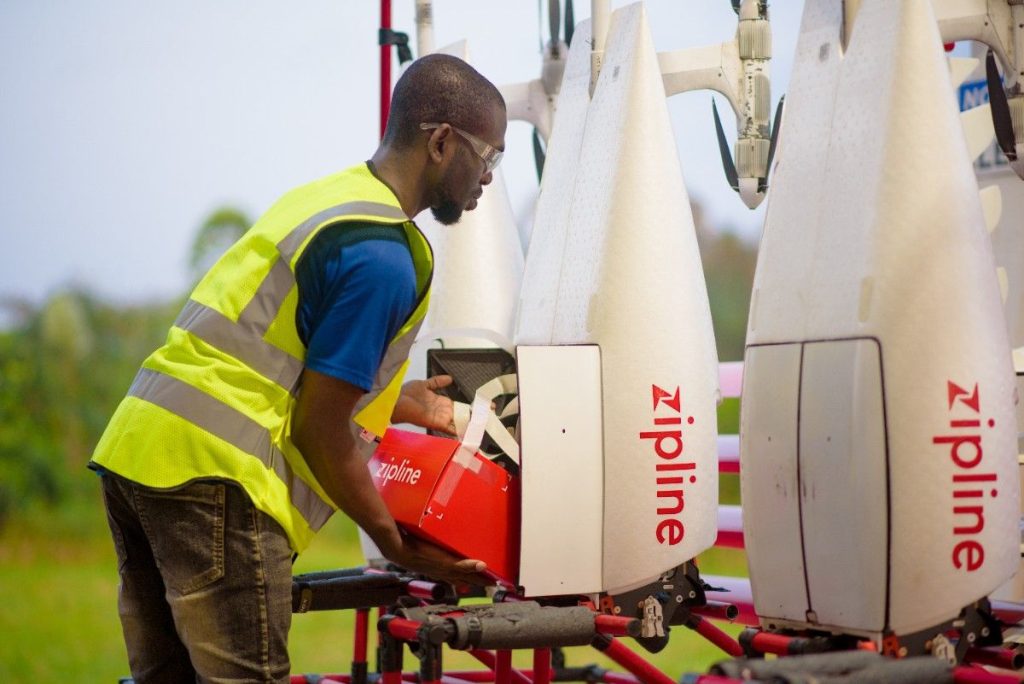Physical Address
60 Ekwema Cres, Layout 460281, Imo
Physical Address
60 Ekwema Cres, Layout 460281, Imo

The U.S. Department of State is stepping in with a $150 million boost to help Zipline grow its drone medical delivery network across Africa. This support is focused on expanding Zipline’s autonomous drone system, and the funding is designed to work on a pay-for-performance basis. That means African countries have to sign up to expand the service and agree to cover the costs of running it long-term. This way, the service becomes sustainable and firmly embedded in public health systems.
Zipline is already the world’s biggest autonomous logistics platform and has been flying drones in Africa since 2016. It delivers life-saving supplies like blood, vaccines, and essential medicines to more than 5,000 hospitals and health centres. With this new investment, Zipline plans to triple its reach and serve over 130 million people by increasing coverage to 15,000 health facilities.
Read Next: Tesla Set to Launch Its First African Operation in Morocco
Along with better health access, the expansion is expected to create over 800 new skilled jobs in areas like logistics, healthcare, robotics, and AI. When it’s all up and running, the program could generate up to $1 billion in yearly economic benefits by fixing supply chain and credit hurdles across different parts of the continent.

Rwanda is set to be the first country to benefit from this fresh funding. They will set up a third distribution centre to double the number of daily drone deliveries. Plus, they’ll use short-range precision drones for urban areas and establish a key facility to test Zipline’s hardware and software innovations.
Zipline is also gearing up to broaden its reach in Nigeria, Kenya, and Côte d’Ivoire. In Nigeria, the company already operates in three states, helping reduce shortages of medical supplies and encouraging more people to visit clinics and get treated. In Côte d’Ivoire, they’re expanding operations to cover more communities and boost local health centres. Kenya’s plan involves reaching more counties in the west and hooking their service up with the national health system.
Thanks to Zipline, major health improvements have already been recorded. For example, in Rwanda and Ghana, maternal deaths have dropped by up to 56%, and the number of missed vaccinations has fallen by over 40%. Fewer people are missing out on malaria treatment too. So far, Zipline drones have flown over 120 million miles and safely completed more than 1.7 million deliveries without a single accident.
The benefits don’t stop with health. The switch from ground transport to drones has saved over 900,000 gallons of fuel and slashed CO₂ emissions by 97%, making it a win for the environment. Local communities are also seeing the perks thanks to new jobs and easier access to crucial health supplies.
Read Next: Paystack States Ezra Olubi was Dismissed Due to Reputational Concerns
Officials from both the U.S. and African countries say the project is a great example of combining technology, innovation, and sustainability. By funding Zipline through a results-driven model, governments are encouraged to keep investing in and expanding this service. The partnership shows how autonomous drone delivery can play a big role in tackling health challenges and improving lives for millions across Africa.
So, with the U.S. supporting Zipline to grow its drone medical network with $150 million, the future looks brighter for healthcare logistics in Africa, bringing faster, safer, and greener delivery of vital medical supplies to where they’re needed most.
Was this information useful? Drop a nice comment below. You can also check out other useful contents by following us on X/Twitter @siliconafritech, Instagram @Siliconafricatech, or Facebook @SiliconAfrica.